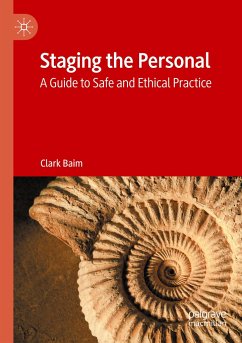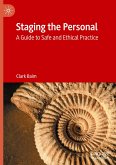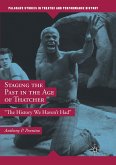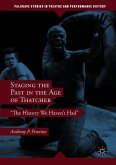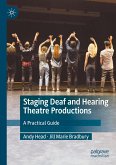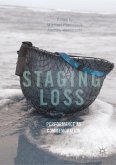This book examines the history, ethics, and intentions of staging personal stories and offers theatre makers detailed guidance and a practical model to support safe, ethical practice.
Contemporary theatre has crossed boldly into therapeutic terrain and is now the site of radical self-exposure. Performances that would once have seemed shockingly personal and exposing have become commonplace, as people reveal their personal stories to audiences with ever-increasing candor. This has prompted the need for a robust and pragmatic framework for safe, ethical practice in mainstream and applied theatre.
In order to promote a wider range of ethical risk-taking where practitioners negotiate blurred boundaries in safe and artistically creative ways, this book draws on relevant theory and practice from theatre and performance studies, psychodrama and attachment narrative therapy and provides detailed guidance supporting best practice in the theatre of personal stories. Theguidance is structured within a four-part framework focused on history, ethics, praxis, and intentions. This includes a newly developed model for safe practice, called the Drama Spiral.
The book is for theatre makers in mainstream and applied theatre, educators, students, researchers, drama therapists, psychodramatists, autobiographical performers, and the people who support them.
Contemporary theatre has crossed boldly into therapeutic terrain and is now the site of radical self-exposure. Performances that would once have seemed shockingly personal and exposing have become commonplace, as people reveal their personal stories to audiences with ever-increasing candor. This has prompted the need for a robust and pragmatic framework for safe, ethical practice in mainstream and applied theatre.
In order to promote a wider range of ethical risk-taking where practitioners negotiate blurred boundaries in safe and artistically creative ways, this book draws on relevant theory and practice from theatre and performance studies, psychodrama and attachment narrative therapy and provides detailed guidance supporting best practice in the theatre of personal stories. Theguidance is structured within a four-part framework focused on history, ethics, praxis, and intentions. This includes a newly developed model for safe practice, called the Drama Spiral.
The book is for theatre makers in mainstream and applied theatre, educators, students, researchers, drama therapists, psychodramatists, autobiographical performers, and the people who support them.

